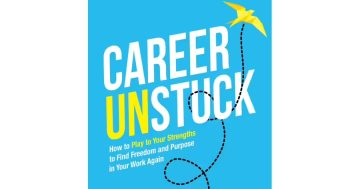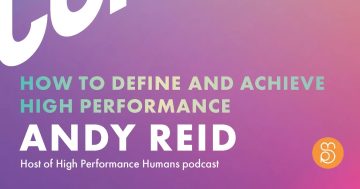Laura Stack says it is easy to get into a rut at work, but finding the real reasons behind that rut and how to get out of it is much harder.
 While you may not see it as the Holy Grail of your working life, personal productivity is a significant determiner of how you’re doing in your career.
While you may not see it as the Holy Grail of your working life, personal productivity is a significant determiner of how you’re doing in your career.
It’s easy to get stuck in a rut, lose traction, and spin your wheels.
Sometimes, gaining awareness of what saps your productivity is the hardest part, when you’re not sure what’s wrong in the first place.
If you’re having trouble identifying your productivity blockers, consider these seven common ones.
A negative work atmosphere:
We’ve all heard stories about a ‘can-do’ attitude breaking records and overcoming expectations.
How many times have you heard that about a ‘can’t-do’ attitude? Never.
One rotten apple really can spoil the whole barrel … and imagine if you’re surrounded by rotten apples.
Toxic co-workers poison productivity, slaughter goals, and destroy teams if you let them.
So, isolate yourself from such people, so you can remain productive even as they let their toxicity ruin their careers.
Complaining:
Nobody wants to hear it. When you complain constantly about your work, you become the toxic co-worker.
You’re responsible for your own happiness, so if something’s bothering you, face it head-on.
If it’s another person’s behaviour, work it out with them.
If your job conditions make you unhappy, discuss it with your manager.
If it’s nothing you can control, talk to a therapist — or, if you must, find a job where you can feel happier.
Working Overtime:
What does it profit anyone if by working 75-hour weeks, you perform worse than if you worked 40?
Yes, you may need to work extra if you want to get a promotion or there’s a busy project in progress, but too much overtime dulls your edge and can be a hazard to your health.
More than about 50 hours a week is about the best anyone can do; anything more, and you suffer diminishing returns and diminishing health.
Perfectionism:
A close partner with procrastination.
You become so obsessed with getting everything just right, you delay completing a task or project… or never get started at all.
While planning is important, too much planning becomes an illness.
Best to line up all the ducks you can, then start shooting without making sure they’re spaced perfectly or that you have every single duck.
You can deal with the details as they arise. Don’t plan every little jot and tittle in advance.
Skipping breaks:
You may think a coffee break here, an hour for lunch there may not help your productivity, but they do — so better to take them than not.
Sometimes, a little change of scenery helps a lot, and not thinking for a few moments can prove surprisingly restful.
The brain alone uses 20 per cent of your body’s energy supply, so resting really does help.
Rest and relax on weekends and vacations.
Wasting time:
You don’t need more than a few breaks daily.
If you’re wondering what to do next or scrambling to dig up materials for your next task, you’re wasting time.
Organise your schedule and work area so you know what’s next and can find what you need right away.
Forget checking Facebook or YouTube.
You don’t really need an extra smoke break or coffee break, either.
Even just 10 minutes wasted per workday adds up to 44.2 hours annually.
Cut down on TV:
Decades of practice and a plethora of new channels have resulted in some amazing, compelling TV these days.
We all have our favourite show, whether it’s Michael Portello or Star Trek: Discovery.
How you spend your home time is your choice, but don’t overdo TV to the point where you trade sleep time for more tube-time.
Same goes for video games and anything else.
If you must get up at 6am to get to work on time, don’t play video games at midnight.
Like most things worth doing, productive work is easily blocked by other things.
Just one moment of inattention, and you’re body-checked into the boards.
Think of it like Tic-Tac-Toe. It’s a fun game, but how long does it take to learn it’s impossible to win?
You can’t complete a row without your opponent blocking you.
In the end, when dealing with productivity blockers, the best lesson remains the one Mathew Broderick taught the computer WOPR in the movie WarGames: The only winning move is not to play.
*Laura Stack is a keynote speaker, author and authority on productivity and performance. She has written seven books, the latest being Doing the Right Things Right: How the Effective Executive Spends Time . She can be contacted at theproductivitypro.com.
This article first appeared on Laura’s blogsite.











